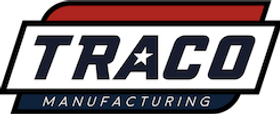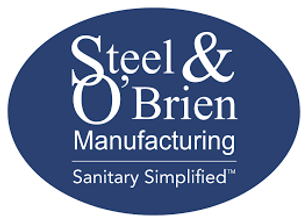
Project
Project

Career Overview
What They Do
Source: CareerZone.NY.gov
The primary role of a CNC Machinist is to create machine parts and tools using precision computer equipment. CNC (Computer Numerical Control) Machinists set up, adjust and maintain all equipment used in their daily job activities. They are also responsible for creating programming instructions for the parts they are manufacturing. Once the parts or tools have been produced, CNC Machinists inspect the finished products to ensure they meet all specifications.
Job Duties
Source: CareerZone.NY.gov
-
Machine parts to specifications, using machine tools, such as lathes, milling machines, shapers, or grinders
-
Set up, adjust, or operate basic or specialized machine tools used to perform precision machining operations
-
Align and secure holding fixtures, cutting tools, attachments, accessories, or materials onto machines
-
Measure, examine, or test completed units to check for defects and ensure conformance to specifications, using precision instruments, such as micrometers
-
Monitor the feed and speed of machines during the machining process
-
Maintain machine tools in proper operational condition
-
Study sample parts, blueprints, drawings, or engineering information to determine methods or sequences of operations needed to fabricate products
-
Operate equipment to verify operational efficiency
-
Check work pieces to ensure that they are properly lubricated or cooled
-
Program computers or electronic instruments, such as numerically controlled machine tools
-
Diagnose machine tool malfunctions to determine need for adjustments or repairs
-
Design fixtures, tooling, or experimental parts to meet special engineering needs
-
Confer with engineering, supervisory, or manufacturing personnel to exchange technical information
-
Lay out, measure, and mark metal stock to display placement of cuts
-
Fit and assemble parts to make or repair machine tools
-
Set up or operate metalworking, brazing, heat-treating, welding, or cutting equipment
-
Support metalworking projects from planning and fabrication through assembly, inspection, and testing, using knowledge of machine functions, metal properties and mathematics
-
Confer with numerical control programmers to check and ensure that new programs or machinery will function properly and that output will meet specifications
-
Dispose of scrap or waste material in accordance with company policies and environmental regulations
-
Separate scrap waste and related materials for reuse, recycling, or disposal
-
Evaluate machining procedures and recommend changes or modifications for improved efficiency or adaptability
-
Establish work procedures for fabricating new structural products, using a variety of metalworking machines
-
Dismantle machines or equipment, using hand tools or power tools to examine parts for defects and replace defective parts where needed
-
Install repaired parts into equipment or install new equipment
-
Prepare working sketches for the illustration of product appearance
-
Advise clients about the materials being used for finished products
-
Test experimental models under simulated operating conditions for purposes such as development, standardization, or feasibility of design
-
Install experimental parts or assemblies, such as hydraulic systems, electrical wiring, lubricants, or batteries into machines or mechanisms
Job Earnings
Source: CareerZone.NY.gov
$31,730 per year average salary for entry-level workers
$54,590 per year average salary for experienced workers
Education/Training Requirements
Source: CareerZone.NY.gov
Most CNC machinist positions require training in vocational schools, related on-the-job experience, or an associate's degree in CNC Machining/Machine Tool Technology. Employees in this occupation typically need one or two years of training involving both on-the-job experience and informal training with experienced workers. A recognized apprenticeship program may be associated with this occupation.
Job Outlook & Growth
Source: CareerZone.NY.gov
In 2016, there were approximately 14,290 machinists employed in New York State. Based on the total number of annual openings and its growth rate in NYS, employment prospects for this occupation are described as favorable.
Career Pathway
Ways to Start Preparing for Your Future Career TODAY!
Middle & High School Opportunities
-
Classes to Take:
-
Computer Programming
-
Drafting
-
Industrial Arts
-
Machining
-
Metalwork
-
Mathematics
-
-
Clubs/Extracurricular Activities:
-
Camp Hard Hat (Summer Camp, Grades 8-10)
-
BOCES/Career & Technical Education Programs
-
Genesee Valley BOCES
-
Metal Trades Program (Batavia & Mount Morris Campuses)
-
-
Monroe2-Orleans BOCES
-
Orleans-Niagara BOCES
-
-
Volunteer Opportunities
-
Habitat for Humanity
-
Local Colleges/Training
-
Colleges
-
SUNY Alfred (Alfred)
-
Erie Community College (Buffalo)
-
Finger Lakes Community College (Canandaigua)
-
Monroe Community College (Rochester)
-
-
Training Programs
-
Genesee Valley BOCES Adult Education
-
Monroe2-Orleans BOCES Center for Workforce Development
-
Orleans-Niagara BOCES Adult & Workforce Education
-

Local Career Connection
Nick Barton,
Machine Shop Process Technician
Liberty Pumps
Bergen, NY
Deeper Dive
Amada Tool America Ribbon Cutting on Plant Expansion in Batavia
NewsBatavian
Introducing D.P. Tool
D.P. Tool
Where Can I Work?
Local GLOW Companies With
Manual & CNC Machining Jobs
This is a selection of businesses in the region offering this career. That does not mean that there are currently positions available. For information on companies who are hiring right now, please visit https://newyork.usnlx.com/
If you would like to see your business listed here in the future, please email us at GLOWWithYourHands@Gmail.com.












.jpg)


